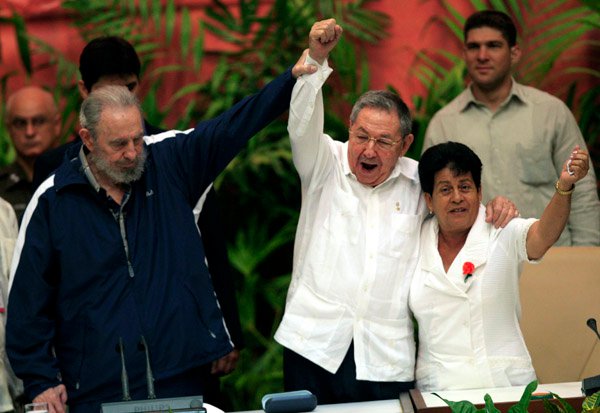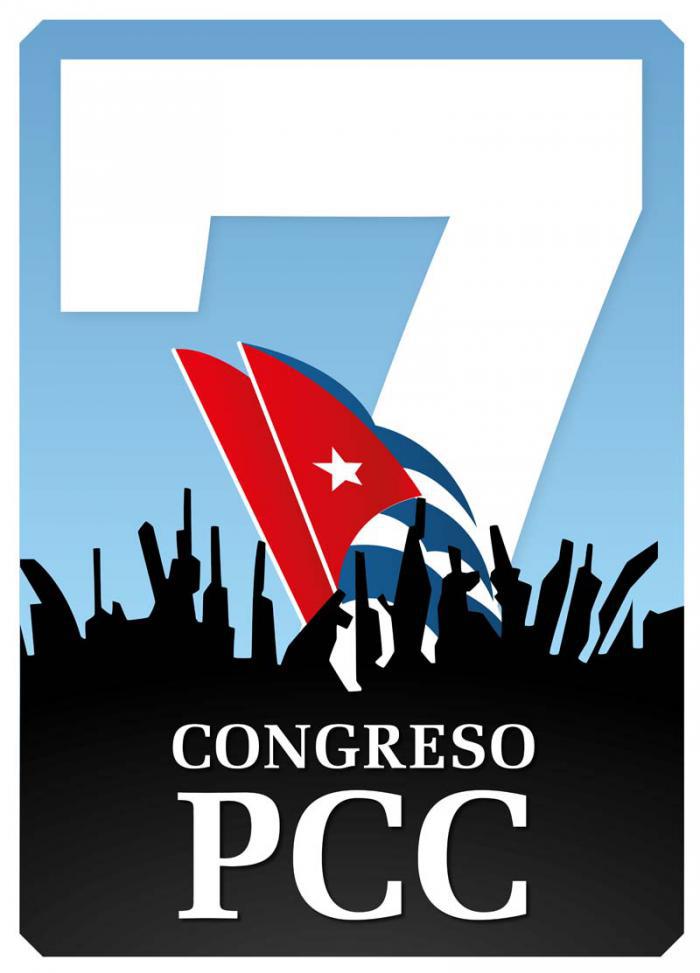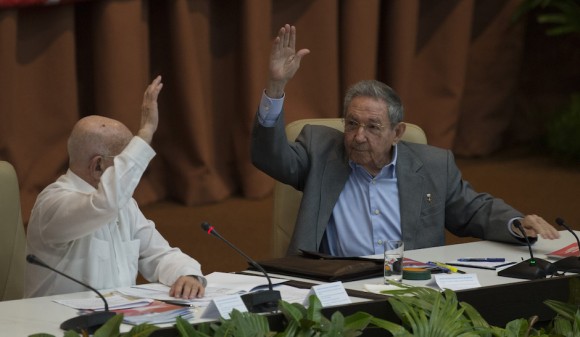Marino Murillo, member of the Politburo and head of the Permanent Commission for Implementation and Development, commenting on Saturday to the 312 delegates and 112 guests of Commission Three on the progress of the economy in this period, said there were no major changes in the structure of the gross domestic product (GDP), and that there were sectors with a poor contribution, like that of agriculture.
He said that the annual growth in imports -4.7 percent as average- was faster than that of the economy, which was reflected in that much of what is sold in Cuban shops is imported.
Murillo, also Minister of Planning and the Economy called to seek changes in the matrices of imports, with an eye on raw materials that will generate added value on the island and resolve this issue structurally.
The document in question reflects that, although the dynamic was not enough to satisfy to a greater extent the creation of productive and infrastructure conditions that would enable further progress, there was no stagnation in the economy.
He pointed out that the growth of Cuba’s gross domestic product (GDP) was above -as an average-, the one experienced by Latin America and the Caribbean between 2011 and 2015, hardly 2.2 percent.
However, Murillo acknowledged that the increase of 2.8 percent of the GDP, as an annual average in the period, does not respond to the dynamics of development the country needs, while growth rates don’t have a significant reflection on national economy.
The activities of trade, restaurants and hotels increased their share of the GDP, from 23.4 percent in 2010 to 26.2 in 2015, although on the other hand the potential present in the economy to advance to higher levels in the replacement of imports achieved discreet results.
The number of people in employment in the state sector is three million 460 thousand, while the non-state sector grew by 461,760 workers, until reaching one million 400 thousand employees last year, resulting from the structural changes undertaken since the Sixth Congress.
An increase of 10 percent in non-state employment backs up the results achieved in the field of employment in Cuba. Meanwhile, the unemployment rate remained at around three percent.
Taking wage increases applied to the sectors of public health, sports, at foreign investment institutions and changes in payment systems in the business sphere as a starting point, one million 500 thousand workers benefited from higher wages, which raised the average wage in the nation to 640 pesos.
The evolution of national economy, given its high dependence on foreign relations, has been influenced by international environment, mainly due to the performance of prices of the main items of export and import and exchange rate fluctuations, points out the information report of the Congress.
Delegates attending Commission Three also knew about the expansion of trade relations with other countries and the beginning of a process to attract foreign investment, after the promulgation of the new Foreign Investment Law of 2014, which will favor access to capital, technology, and market and management experience to help eliminate structural imbalances.
Achievements in economic matters were reached by getting around dissimilar difficulties such as the international crisis and the strengthening of the blockade imposed by the United States, particularly the pursuit of financial transactions carried out by the country.
Murillo stressed that a process of consolidation of external finance, including the reorganization of debt, has started, which Army General Raul Castro, First Secretary of the Central Committee of the PCC, assessed on Saturday as essential to contribute to the international credibility of Cuba.
An example of what has been achieved in this area is the debt renegotiation agreements with China, Japan and Russia, as well as the Paris Club.
A total of 21 percent of the 313 guidelines approved during the previous Congress are fully implemented, 77 percent is in the process of implementation and in two percent it has not started.
Raul highlighted that the updating of the economic-social model is a complex process involving changes in the way of thinking and acting of people, transcending its realization to the term of five years, so new guidelines will be discussed by delegates to the most important political meeting in the country.
The First Secretary highlighted the 130 policies adopted over the last five years and the 344 legal norms of different levels and the repeal of 684.
He acknowledged that the slow implementation of legal regulations has delayed the implementation of approved policies.
Delegates at discussions of Committee Three of the Congress analyzed on Saturday afternoon and will continue to analyze on Sunday the updated proposal that is expected to have 268 guidelines, 31 of which keep their original wording, 193 are modified and 44 new ones have been added.
With the presence of 995 delegates and 280 guests, the 7th Congress of the Cuban Communist Party will be in session until April 19, when the names of the members of the Central Committee, Politburo members, the First and Second Secretaries, and the members of the Secretariat elected will be announced.




